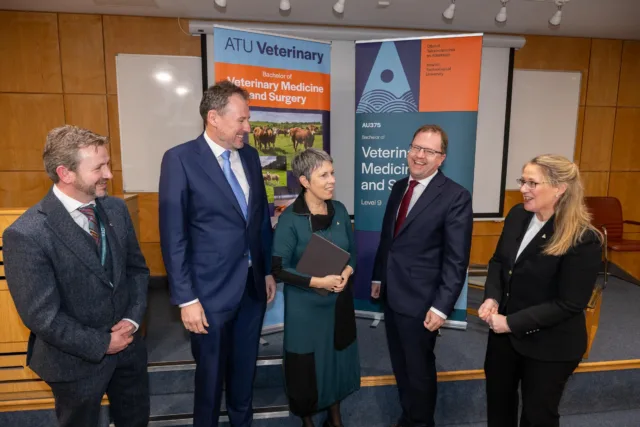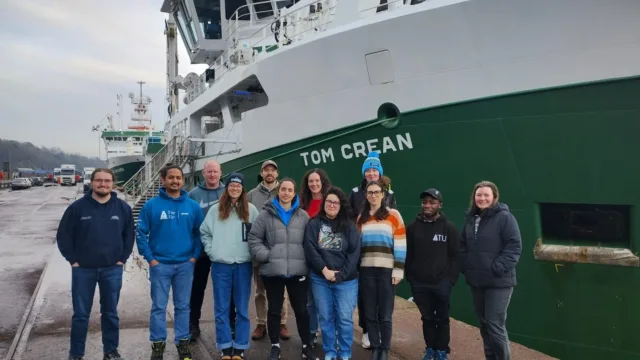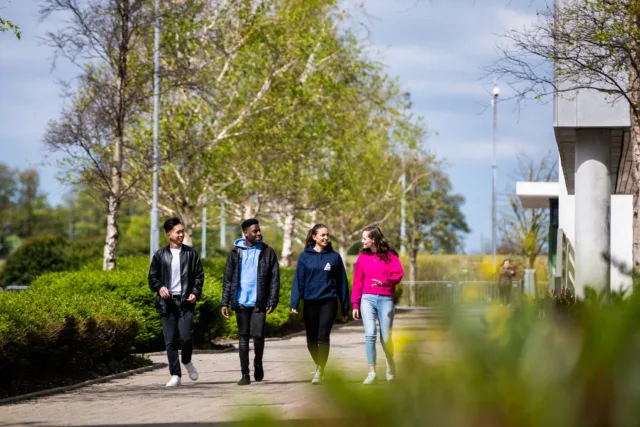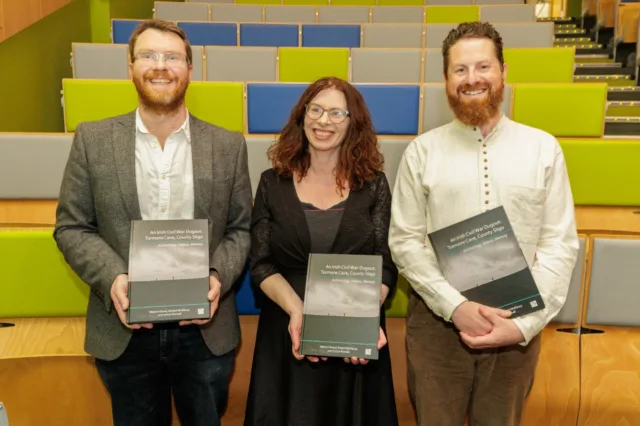Courses
ATU launches free course to increase our understanding of Ocean Pollution
Atlantic Technological University has launched a new short online course on Ocean Pollution, which seeks to educate and highlight the importance of oceans and the damage that can be caused by the decisions we make.
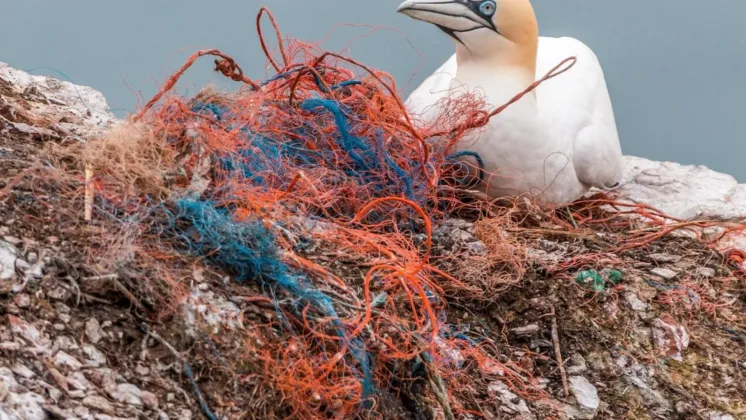
“We must all take ownership of our oceans.” – Roisin Nash, ATU Senior Lecturer
Atlantic Technological University has launched a new short online course on Ocean Pollution, which seeks to educate and highlight the importance of oceans and the damage that can be caused by the decisions we make.
The new MOOC (Massive Open Online Course) explores ocean pollution and through incorporating the seven ocean literacy principles, sustainable development goals (SDGs) and the United Nations Decade of Ocean Science for Sustainable Development, the course covers several topical areas, such as marine litter.
Aiming to provide students with the knowledge and tools to understand the underlying concepts surrounding the different types of ocean pollution, senior lecturer and project lead Róisín Nash says they endeavoured to make the course as engaging as possible, using interactive content, such as quizzes, striking yet informative images, and inviting a variety of guest speakers to talk on different topics.
“When we looked at ocean pollution, we found that people are often focused on one element, like plastic pollution, and they invariably forget those ‘invisible’ pollutants like noise pollution,” says Dr Nash. “And it’s the combination of all these pollutants that have the ocean in its current state.”
Alluding to the numerous causes of pollution, from chemical to heavy metal pollution and nutrient to noise pollution, Dr Nash continues: “We start the course by exploring the importance of the ocean and then introduce the learner to the different types of pollution and follow their pathways to the ocean where we illustrated the impacts they were having on the marine environment and its inhabitants.”
The ocean pollution MOOC aims to educate learners through action-oriented learning, enabling them to apply their knowledge in their own local context, regardless of their professional background or geographical location.
Throughout the course, learners are presented with real-life examples and case studies to illustrate the key concepts and principles. While Dr Nash was the project lead, she credits a great deal of the content creation of the MOOC to Dr Haleigh Joyce, a Postdoctoral Researcher in aquatic science and Mal Deegan from MD Productions. In addition, the feedback from Dr João Frias, a senior Researcher, who also involved in the delivery of a guest talk, was invaluable.
“Most ocean pollution begins on land and there is where we should look to change our habits in order to mitigate and reduce pollution,” says Dr Nash. “Marine pollution is a combination of, for example, chemicals, nutrients and rubbish, which are washed or blown into the ocean most often via our rivers.”
“We are often focused on one problem, like when we talk about ocean acidification (a reduction in the pH of the ocean over an extended period of time, caused primarily by uptake of carbon dioxide from the atmosphere), or overfishing, when actually we should be focusing on the whole picture, the cumulation of all the different problems associated with the ocean.
“Because what’s going to happen is we’re going to reach a tipping point where an increase in one of the many issues or the addition of a new issue will disrupt the balance in the ocean and result in a major catastrophic event which may not be reversible.”
Although acknowledging that there are “so many areas to cover under the topic of ocean pollution”, Dr Nash believes the MOOC “gives you a flavour of everything” and may encourage learners to delve further into the subject matter to become better informed by reading research papers and reports.
“We have provided some additional reading at the end of each week (of the MOOC) if people want to dip into them,” she adds.
When it came to sourcing case studies and other material, Dr Nash says “it wasn’t very hard to look for real life examples, unfortunately”, as all too often oil spills, sunken shipping containers, and discarded fishing nets result in untold damage.
“While we may only hear of the major events worldwide, it’s not an isolated occurrence. The Polluter Pays Principle is one of the key principles underlying the European Union’s (EU) environmental policy and that’s something that policymakers often comment on when they are looking at pollution. Who is to blame for the source of the pollution?
“We are all to blame because we are all contributing to it. It’s not a case of going, oh, well this Coca-Cola can was sold in the United States, so they’re polluting our waters. We all need to take ownership as we are all contributing to the problem.”
Recognising that many people lead busy lives, the course is designed for students to dip in and out of, with the various items and articles brandishing time stamps. “We’re very conscious of people’s time, so we highlight how much time it would take to cover each aspect of it,” says Dr Nash.
“So, whatever time you have, say five minutes, you can go in and read a section or complete a task that takes five minutes. You can pop in and out. I know when I do a course and it says this [task] will take 20 minutes, I’m like, well, I don’t have 20 minutes right now, I’ll come back to that. However, if there is something I can read for five minutes, I will do that.”
As the students’ complete tasks, the various elements of the course are ticked off. Upon completion of the course they will receive a digital badge on Ocean Pollution.
Freely available online for anyone to enrol, the MOOCs enable various social groups worldwide to access high-quality education. The creation of the ocean pollution MOOC provides an affordable and flexible way for learners to obtain new knowledge in this area, increasing ocean literacy which can only benefit society.


